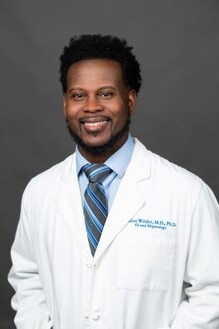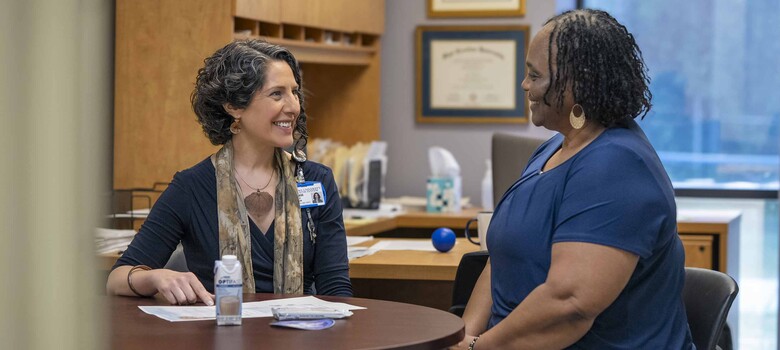Simple Test for Stomach Bug Can Help Prevent Stomach Cancer

Since discovering a common bacteria called Helicobacter pylori (H. pylori) puts Black, Hispanic, and Asian-American people at a higher risk for stomach cancer, Duke Cancer Institute epidemiologist Meira Epplein, PhD, has been encouraging these and other populations to ask their doctors about getting tested for the bacteria. Cancer risk can be reduced when H. pylori is detected early and treated with antibiotics. “There are so many cancers we don’t know how to prevent,” Epplein said. “Stomach cancer is one of the few we do.”
The Importance of Testing and Treating Black and Latino Communities
Epplein, who is co-leader of the Duke Cancer Institute’s Cancer Risk, Detection, and Interception Program, has dedicated her career to discovering how certain gastrointestinal cancers may form and how to combat them. In 2018, she discovered H. pylori, which infects about half the world’s population, can also increase colon and rectal cancer risk among Latino and Black Americans.
That same year, she connected with a Durham church through the Durham Initiative for Stomach Health to better understand local risk for stomach cancer. Her study tested 92 congregants for the presence of H. pylori. Twenty-three tested positive and talked to their doctors about getting treatment.
“Treatment is a simple course of antibiotics," said Duke gastroenterologist Julius M. Wilder, MD. "Now that we know how it can disproportionately impact communities of color, it's important for us to prioritize working with our patients to find it and treat it."
Treating H. Pylori Starts with a Simple Test
While H. pylori can be present without symptoms, Dr. Wilder said it's especially important to talk to your primary care provider if you experience consistent abdominal pain, nausea, and bloating, as well as stomach ulcers as they are signs that H. pylori may be present. Testing for H. pylori is as easy as blowing into a tube. A course of antibiotics rids the body of the bacteria and reduces the risk of stomach cancer.
Many Still Unaware of the Connection between H. pylori and Cancer
Bishop Ronald Godbee had never heard of H. pylori until Epplein approached him about finding volunteers for her 2018 study at Durham’s River Church where he is the senior pastor.
“My interest was immediately engaged as I discovered what it was and how it affected my community,” he said. “This was something that inevitably ended up in the demise of people I love. People who look like me, people who worship with me, people who exist in the same community as me, and there was a cure for it. There was something that we could do to radically alter the course of this.”
As Duke is a “trusted resource in our community,” Godbee said the partnership and getting members of his congregation to Duke providers for further testing was a “no-brainer.”
“Who actually gets to see lives saved and the joy extended because of that?” Godbee said. “We have so many people elated to have met Meira and been a part of her work.”



